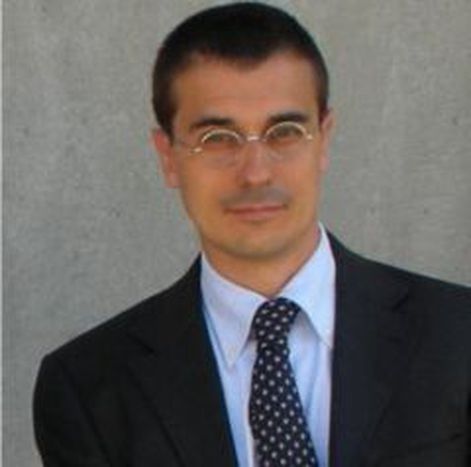
"Mr Idiot, would you respond?" - British Eurosceptic's outburst against the EC
Published on
By Anna-Karin Friis A few weeks ago, the European commission spokesman for economic affairs, Amadeu Altafaj Tardio, was insulted on the BBC Newsnight by Peter Oborne, columnist with the Daily Telegraph. After repeatedly having been called an idiot, Altafaj walked out of the Brussels studio. But what was the argument actually about? The occasion was one more Euro crisis discussion.
The British commentators were getting tough on Brussels and wanted the Commission to apologize for the lack of leadership. Altafaj, known in Brussels for his repetitive statements and for his ostrich-like capability of sticking his head in the sand and pretending nothing is the matter with the common currency, embarked on an evasive response about evoking political will from Europe's leaders. The argument erupted when the Commission representative was asked to explain why the markets do not seem to buy this argument of political responsibility.
"There is more than market logic at stake", Altafaj replied. "This is a political construction.This is a political project and we believe this is best way to ensure prosperity and maintain welfare systems that has no comparison all over the world."
Peter Oborne burst out saying the Brussels policy makers are mad. "It is really weird, he does not know what he is talking about", the Daily Telegraph columnist said, blaming Brussels for considering the Euro crisis a political problem. "This is an economic problem. The Euro is collapsing under the weight of its own contradictions." Turning to the screen vision of the Brussels studio, Oborne exclaimed: "These guys are in denial, it is frightening to listen to that idiot in Brussels!"
Jeremy Paxman, programme presenter of Newsnight, asked Altafaj to react: "Mr Idiot, would you respond?" Altafaj again proved a wall against which any ball bounces back. He calmly carried on according to his script: "The Euro is a shield that protects our economies. It is a factor behind stability and prosperity."
Oborne warned that the "inhumanity" of the Euro destroys the livelihood of the Greek people, who suffer under the yoke of the strong currency. When he again began ranting about the Euro elite, "these idiots in Brussels", Altafaj walked out of the broadcast from the Brussels studio. The other discussants scolded Oborne for being overly offensive. "I have been listening to this man talking such nonsense over a number of times about things that affect the lives of millions and millions of people", he exclaimed. "That nonsense is offensive to decent people that want jobs."
Economic affairs Commissioner Olli Rehn has since come out in defence of his spindoctor. The debate over the insults has clouded the problem that the EU executive is in the habit of skilfully ducking the questions and fudging the real issues. The EC's policy discussion does not approach the reality that the contraction of the economy and sluggish growth, exacerbated by the strong Euro and austerity policies, have brought on ordinary people. It is interesting to hear the Commission actually defend European welfare when it in fact does its best to having social security dismantled by insisting on EU member states undertaking unforeseen austerity measures to curb their fiscal spending. And even more curious was the rhetoric to legitimise the currency union by tracing its origins back to the end of the World War II, a claim which does seem far stretched.
Oborne has just come out with a book called Guilty Men, in which he accuses leading British journalists of failing to analyse and challenge the founding of the European monetary union in the 1990's. The book sets the scene by claiming that the "dysfunctionality of the Euro" from the outset in fact was the "chief attraction" of the common currency project to the French, who "could safely rely upon it to cause the periodic acute crises which then supplied the political context for the next great leap forward in Euro centralisation, edging ever closer to one country, be it Third Empire or Fourth Reich, enshrining Monnet’s City on the hill from which French diplomats could go forth with German cheque books in their baggage to strut their hour upon the world stage."



